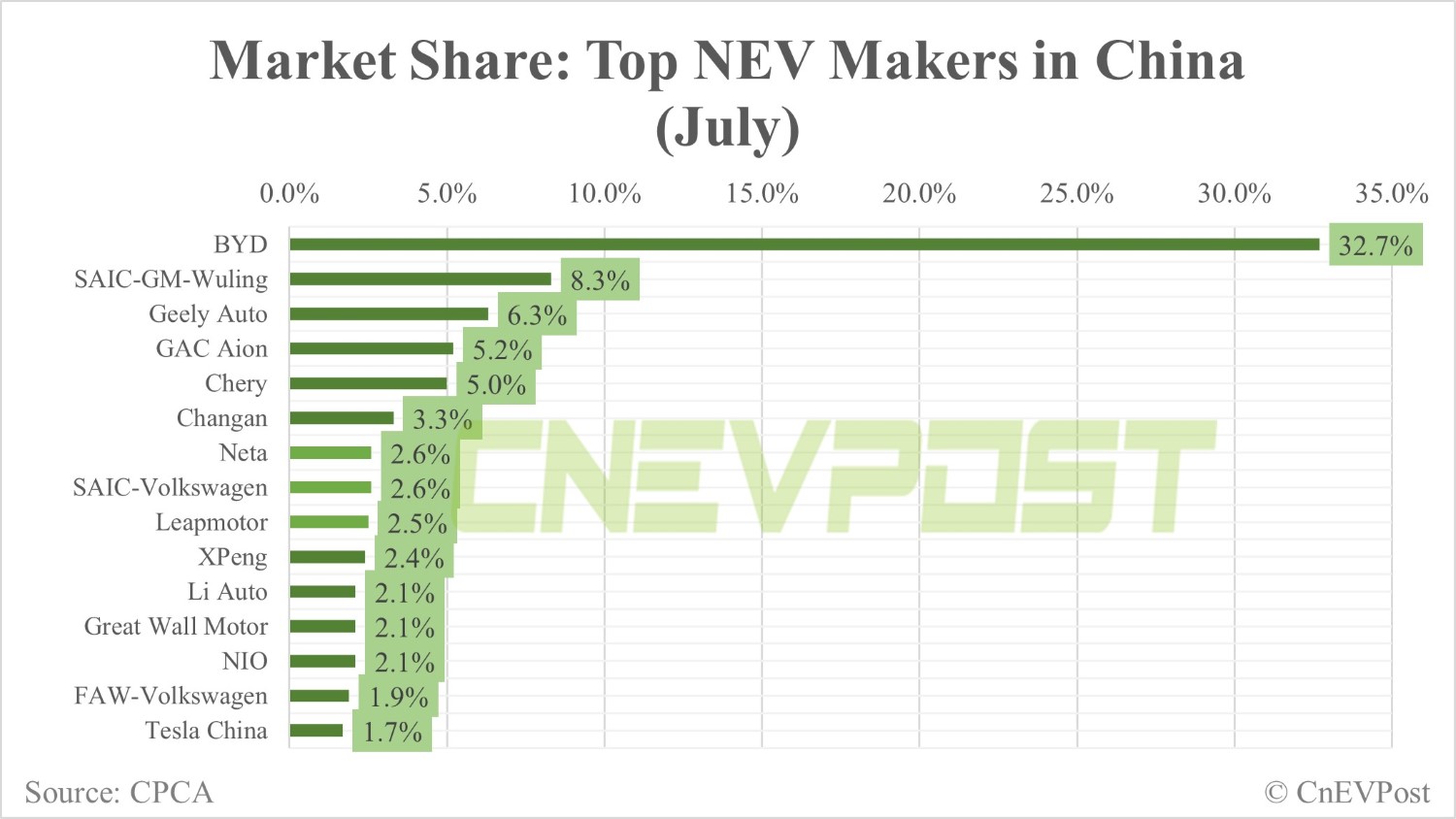SAIC-GM-Wuling had an 8.3 percent share of China's NEV retail sales in July, Nio at 2.1 percent and Tesla China at 1.7 percent.

As China's largest new energy vehicle (NEV) manufacturer, BYD contributed about one-third of China's NEV sales in July.
BYD's retail sales in July were 158,957 units, giving it the No. 1 share of China's NEV market at 32.7 percent, according to a list released Wednesday by the China Passenger Car Association (CPCA).
Notably, NEVs include both battery electric vehicles (BEVs) and plug-in hybrids (PHEVs). Some of the car companies on the CPCA's list produce both, while others produce only BEVs, such as Tesla, Nio and Xpeng Motors.
BYD sold 80,991 BEVs and 81,223 PHEVs in July, according to figures released by the company earlier this month. It stopped production and sales of vehicles powered entirely by internal combustion engines (ICEs) in March.
The CPCA list also includes NEVs in all price ranges, while some automakers target the low-end market and some brands target only the high-end market.
SAIC-GM-Wuling ranked second on the CPCA's list, with an 8.3 percent share. The company currently produces only inexpensive BEVs, including the hot-selling Mini EV.
On August 8, SAIC-GM-Wuling announced that its cumulative sales of NEVs surpassed 1 million units. The Mini EV sold 37,128 units in July, up 20.9 percent from 30,706 units in the same month last year, according to the CPCA.
Hozon Auto's Neta contributed 2.6 percent of China's NEV sales in July, Leapmotor at 2.5 percent, Xpeng at 2.4 percent, and Li Auto and Nio both at 2.1 percent, according to the CPCA.
Tesla China's share of China NEV sales fell to 1.7 percent in July as production was disrupted by the Shanghai plant upgrades.
From January to July, BYD contributed 29 percent of China's NEV sales, compared with 9.1 percent for SAIC-GM-Wuling and 7.5 percent for Tesla China, according to the CPCA.

Xpeng's share from January to July was 2.9 percent, Neta was 2.8 percent, Li Auto was 2.6 percent, Leapmotor was 2.3 percent and Nio was 2.2 percent.
When ICE vehicles are included, BYD was also the top retail seller in China in July with an 8.7 percent share. FAW-Volkswagen was second with an 8.5 percent share and SAIC-Volkswagen was third with 6.6 percent.
Among all cars sold at retail from January to July, FAW-Volkswagen ranked first with a 9.2 percent share, BYD was second with 7.2 percent and Changan Automobile was third with 6.1 percent, according to the CPCA.
BYD supplying batteries to Tesla, first vehicles to roll off line as soon as August, report says



